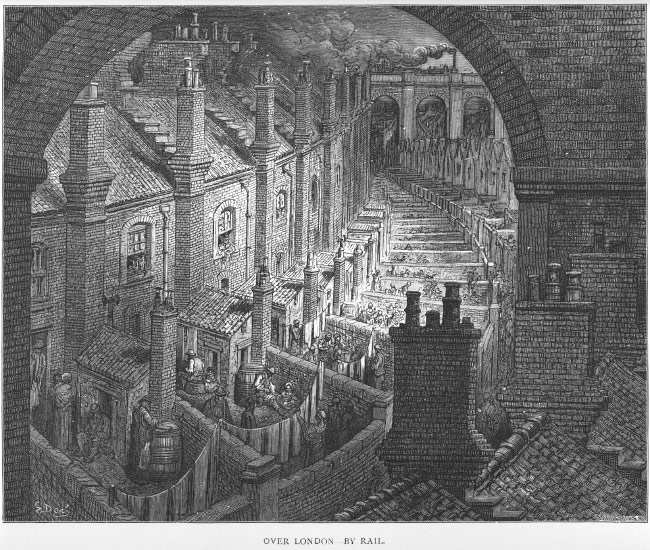Introduction
With the arrival of the Industrial Revolution in England, many people left the countryside where they had worked in their cottage industries and on their farms and went to the cities to work in factories. The lure of money was strong. You found out how exploited and overworked they were in those factories and in the mines and in what cramped, filthy, and polluted conditions they were forced to live (as you can see in the picture), and that led to Parliamentary investigations and the enactment of laws to protect workers — laws that affect you today.

Think back to what you have learned so far about how money was made and how the industrial revolution changed the nature of business and how it was run. Before, absolute rulers controlled all aspects of the lives of their subjects — especially how much of one's profit was to be given back to the ruler, right? When the bourgeoisie began to emerge and make money in trade and commerce, they put their rulers on notice that they would be a force to be reckoned with.
After the Enlightenment and the advent of the American and French Revolutions, people began to speak out about the nature of work and workers. Often called the Age of Isms because of the terms used to describe political, economic and cultural issues, this era brought us many ideas about changes that would improve the lot of some while hurting others.
|
Lesson Objectives
Following successful completion of this lesson, students will be able to:
The above objectives correspond with the Alabama Course of Study: World History: 1500 to the Present Objective(s): 9. This lesson incorporates the following Literacy Standard(s): |
